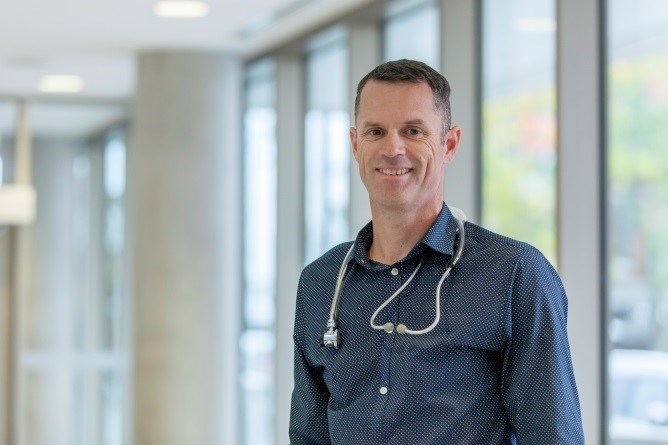For the sake of children’s mental health, Dr. Rob Meeder says schools need to reopen as soon as possible.
“Schools should be the last to close and the first to open,” Meeder said, noting teachers and DECEs should now be near the front of the vaccine line to ensure it’s possible.
“I know it's a supply issue to some extent, but it's also like what are we prioritizing? That (vaccinating frontline staff) will help in getting schools reopened safely, so that teachers can feel safe while providing our kids with an educational and social environment where they can thrive.”
And Meeder knows of which he speaks, serving as medical director for Waypoint Centre for Mental Health Care’s Family, Child and Youth Mental Health program.
“We need to set strict parameters in place in the rest of our society so that kids can go to school,” Meeder said, noting the risk COVID-19 poses to children is fairly low and comparable to getting the flu.
“With such widespread community transmission, that (reopening) would probably not be feasible right now. But it should be one of our first priorities, kids need school. My hope is that once the numbers decrease, schools will reopen.”
And prior to the pandemic, Meeder said mental health professionals were already concerned about the amount of time children and youth were spending watching screens, an issue that’s been further exacerbated by the advent of virtual classrooms.
“The mental health issues are going to be felt for years to come, especially with teens, they’re really struggling,” he said, adding there’s a real correlation between how increased screen time and social media activity impacts a child’s mental health.
“We're already dealing with increasing rates of anxiety and depression. And then you throw in something like the pandemic, which basically removes so many of the supports that kids had like social supports, sports, activities, schools and milestones missed," said Meeder, who noted youth are also coping with the possible economic pressures their parents are feeling.
"Everything was thrown into disarray.”
The Waypoint-based program recently received additional funding from the province that will allow it to expand services to provide additional community-based mental health care in a unique collaborative care model for the region.
“With the Ministry of Health funding, we’ll be able to hire three more physicians,” Meeder said during an interview with MidlandToday.
The hospital is now recruiting for child and adolescent psychiatrists and pediatricians with a focused practice in mental health.
Meeder, who arrived at Waypoint last year to head up the initiative, said the program definitely serves an important role across the region.
“Access to timely and equitable mental health care has been quite lacking,” he said. “Historically, it's always been a one- to two-year wait list to have a child seen for a school problem, a behaviour problem or mental health problems such as anxiety or depression. It’s always taken a bit of a backseat to other medical issues.
“And, whereas, we know now that mental health issues and physical health are so closely intertwined, and just as important, and it's just good to see that that’s sort of being validated through an expansion such as this.”
This expansion is in addition to the existing pediatric mental health services in the Simcoe Muskoka region. Services will cover the full spectrum of mental health conditions for toddlers to transitional age youth (youth who would be entering the adult system) in a trauma-informed, family-focused setting.
Care will be provided both virtually and in-person at the Community Health Hub in Midland or at regional affiliated primary care settings. It will be part of Waypoint’s outpatient and community programs, and will integrate services for transitional age youth.
“Adding these services to existing pediatric mental health services in our region will make a huge difference for families and children who are currently waiting extraordinarily long times for pediatric mental health care,” Meeder said.
“It will also allow us to approach childhood stress and adversity on a larger scale, in a proactive way, as we move forward to reduce early life stress and address behaviour problems in children in a meaningful way.”
And the need has never been greater, according to Meeder, who notes his team aims to intervene and help area families, youth and children before the situation escalates to a point of no return.
“We need to intervene way sooner than that,” he said. “The earlier we can intervene, the better.
“Taking a preventative approach with children now will have positive impacts years, even decades, down the road. We know that early life stress is a huge predictor for later mental health issues and physical health issues.”
As well, Meeder pointed out that there’s an important reason the program features the word 'family' in its moniker.
“Families are really the cornerstone of what we can do with kids and how we can work with kids,” he said. “It doesn't happen unless families are supported.
“And so this program is really committed to addressing not just kids in and of themselves, but to whole families and the family structure around them.”



